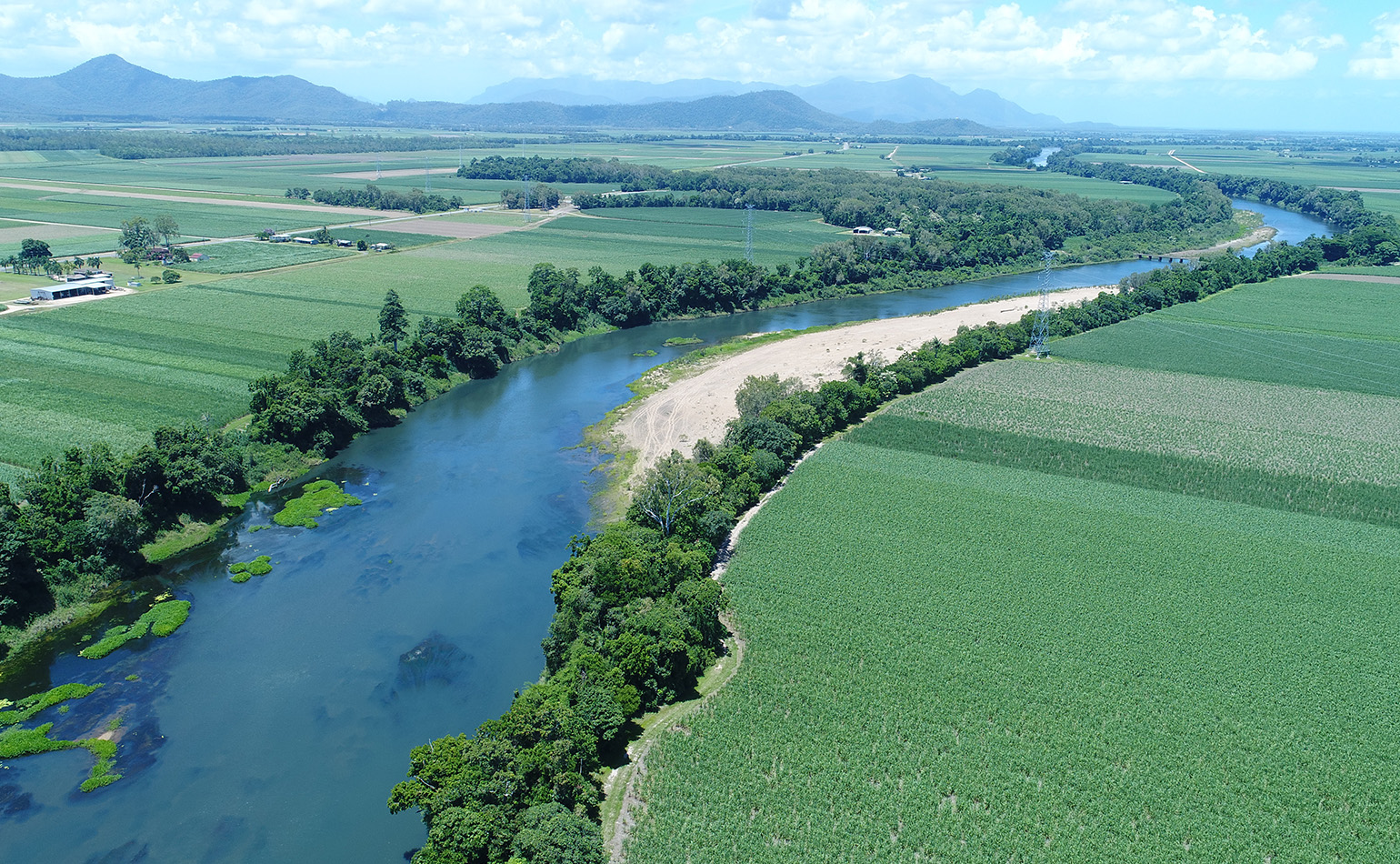The Soil CRC’s Communications Manager caught up with Lawrence Di Bella, Manager of Herbert Cane Productivity Services Limited (HCPSL), for a five-minute chat.
Tell us about Herbert Cane Productivity Services
Herbert Cane Productivity Services is a grower group servicing the sugarcane growing region around Herbert River in far north Queensland, based at Ingham, north of Townsville. Originally established in the early 1900s, it was formed under state government statute to manage pests and diseases in cane farming. In the 1990s, it became a company limited by guarantee.
Now, almost all the farmers in the Herbert River district are members of HCPSL, each paying a membership fee, which the local mill matches dollar for dollar. Members get access to core services which include clean seed; access to extension staff for information about pests, diseases, farming systems, drainage, cover cropping and nutrients; newsletters; workshops and meetings. They can also access the local GPS base station network which is used to steer tractors and harvesters.
Additionally, Herbert Cane operate a fee-for-service arm which offers a soil mapping unit. Growers can hire HCPSL to map soil on their farms down to 6m, using its Dualem machine. Soil maps are generated and the grower and the advisor can sit down together to develop management strategies for problematic areas on the farm. This enables different soil constraints to be addressed within the same field with zonal amendments and nutrients.
The sugarcane industry is data rich with HCPSL staff using soil testing data to look at different soil nutrient trends across the district.
What area and type of farming do you cover?
This is cane country. We harvest around 57,000 ha of sugarcane every year – which equates to between 4 and 4.5 million tonnes of cane. While it is predominantly sugarcane, some of our farmers are growing cover or cash crops on fallow fields. These can be green manures, melons, pumpkins, sweet potato, maize and rice.
We are situated in the Wet Tropics of far north Queensland, based at Ingham, servicing the area around the Herbert River. We have two distinctive zones, a wet zone and a dry zone. In our wet zone, we get about 2200 mm of rain on average per year and in the dry zone it can be low as 1000 mm average per year. Most of the rain falls between December and May. Monsoons have a large influence on our rainfall patterns. In fact, this area holds the record for the most intensive rainfall in a short period when we had 700 mm fall overnight a few years ago.
For the most part, our biggest challenge is getting water off our properties, but we have areas south of Ingham that have been in drought for two years, so it is variable!
What type of soil do you have?
We have a real mix of soils. Along the river, we have alluvial soils. In other areas, we have a lot of heavy clay soils which go from extreme wet to extreme dry. We also have acid sodic soils. Our clay soils can be high in magnesium. The Herbert soil pH sits around 5 or below, so aluminium can be a problem for our farmers too.
Why is soil important?
Soil isn’t just something that holds up a plant. It provides nutrients and water and habitat for microbes to live and procreate. Without productive soil, we can’t produce crops and we can’t achieve appropriate yields. Sustainable soils are healthy soils.
Why did HCPSL become a participant in the Soil CRC?
Our members identified soil health as one of the most important issues they are facing. Healthy soils are very important to maintaining both productivity and sustainability. It is vital to our industry.
What is exciting about working with the Soil CRC?
Being part of the Soil CRC is not only good for us as a grower group, but it is good for the cane industry in general.
We are the most northerly farmer group in the Soil CRC and sometimes it is difficult to attract people to come so far north to participate in research. Now, we have access to researchers from universities down south, which wouldn’t have happened otherwise. Being a small group, we do not have all the expertise we need, so being part of the Soil CRC has brought in the skills and expertise from across Australia.
Herbert Cane Productivity Services does not focus on research, but on development and extension, so the Soil CRC is bringing the research to us and we are evolving and extending that research making it practical and relevant to farmers
Projects that HCPSL are working on
New sensors for measuring soil nutrients (2.2.003)
Affordable rapid field-based soil tests (2.2.004)
Visualising Australasia’s Soils (2.3.001)
Recovering nutrients from organic waste streams (3.1.003)
Unlocking soil nutrients with organic amendments (3.1.006)
Improving pesticide delivery efficiency (3.2.001)
New organic amendments for retaining soil moisture (3.3.004)
Evaluating alternative rhizobial carriers (3.4.001)

